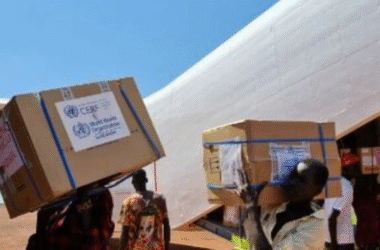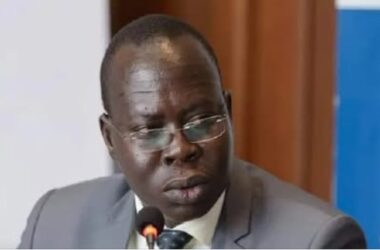By Yiep Joseph
An impasse looms in Tumaini Peace Talks in Nairobi, as government delegation maintains the initiative be annexed to 2018 Agreement on the Resolution of Conflict in South Sudan (R-ACRSS).
In contrast, the opposition is strongly rejecting this proposal, holding instead that the initiative should stand independent of the previous agreement.
Speaking on Tuesday, Dr. Martin Elia Lomuro, a member of the government delegation reiterated the government’s firm stance on incorporating the Tumaini consensus as an annex or a complementary document to the R-ARCSS.
“We have explained to the opposition and the mediation that our position as the government is actually based on the protocols that were generated during the Tumaini consensus and that what we have done is to align the protocols to the agreement on the resolution of conflict in the Republic of South Sudan,” Lomuro stated.
“We should have an agreement which truly describes the Tumaini consensus as an annex or as complementing the R-ARCSS,” he added.
The United People Alliance, however, have not yet presented their position on the initially agreed-upon protocols but is expected to do so today.
But, they have repeatedly stated previously that the Tumaini Initiative cannot be annexed to the R-ARCSS.
The relationship between the Tumaini Initiative and the 2018 Revitalized Peace Agreement has been a source of contention between the government and the opposition groups since the initiative was launched on May 9, 2024.
Last year, the government delegation in Nairobi insisted on incorporating the Tumaini consensus as an annex to the R-ARCSS. However, the holdout group, now known as the United People’s Alliance (UPA), proposed a separate agreement.
Recent negotiations have been marked by disagreement, with the government requesting a review of previous R-ARCSS chapters while the opposition rejected this proposal.
While these talks are viewed as a last-ditch effort to reach a comprehensive peace deal, the government’s firm stance on the Tumaini consensus as an annexe may present a significant challenge.
As negotiations resume today (Wednesday), the burden is on the UPA to either compromise and accept the government’s position or propose an alternative solution. This decision will likely determine the future of the peace talks.
The initiative aims to achieve lasting peace in South Sudan by bringing in the opposition parties that did not sign the 2018 peace agreement.
Despite the president’s directive to conclude the talks within December, the parties failed to reach an agreement. The discussions were adjourned and rescheduled for January 6th due to a new deadlock over the previously agreed-upon protocols.
According to Lomuro, if the opposition agrees with the government’s position, the groups will be incorporated into the existing structures and implementation mechanisms of the R-ARCSS.




